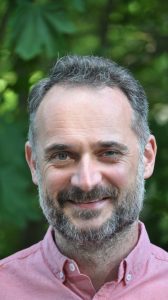


A profile in The New York Times said of Haskell that he “thinks like a biologist, writes like a poet, and gives the natural world the kind of open-minded attention one expects from a Zen monk rather than a hypothesis-driven scientist.” E.O. His book, The Forest Unseen: A Year’s Watch in Nature (Viking Penguin, 2012), was winner of the National Academies’ Best Book Award for 2013, finalist for the 2013 Pulitzer Prize in non-fiction, winner of the 2013 Reed Environmental Writing Award, winner the 2012 National Outdoor Book Award for Natural History Literature, and runner-up for the 2013 PEN E. But from those observations, he produces a work of great poetry, showing how these trees are joined to the natural world around them, and to humanity as well.” Carl Zimmer, author of A Planet of Viruses.David Haskell’s work integrates scientific and contemplative studies of natural world. He picks out a dozen trees around the world and inspects each one with the careful eye of a scientist. “David Haskell does the impossible in The Song of Trees. “David Haskell writes with uncommon insight and sensitivity: listening and giving voice to the ineluctable networks in which trees and all human experiences are embedded.” Sir Peter Crane, FRS, President of the Oak Spring Garden Foundation, former Dean of the Yale School of Forestry and Environmental Studies, former Director of the Royal Botanic Gardens in Kew, author of Ginkgo. David Haskell has opened up a new dimension in sound – and given us a powerful tool to rethink the way we look at the roots of our reality and how trees are the best way to guide us. “This book makes you remember the fragile nature of humanity’s relationship to the world around us. The Songs of Trees reminds us that we are not alone, and never have been.” Neil Shea, writer and photographer for National Geographic and other publications. With a poet’s ear and a naturalist’s eye Haskell re-roots us in life’s grand creative struggle and encourages us to turn away from empty individuality. Haskell’s trees are guideposts on a fascinating and refreshing road trip-the sort of listening tour we should require of all politicians. The book is nominally about trees, but it’s really about connections, the networks that link plants, animals, bacteria, humans, and the forces that have made such webs possible. At a time when we are constantly asked to choose sides, to dig in, to rally around ever smaller ideas, David Haskell examines the walls that would imprison us and, armed with science and patience, dissolves them. Listen as David Haskell takes his stethoscope to the heart of nature – and discover the poetry and music contained within.” Peter Wohlleben, author of The Hidden Life of Trees. The Songs of Trees is a powerful argument against the ways in which humankind has severed the very biological networks that give us our place in the world. Don’t miss it.” Deborah Blum, Pulitzer winner, author of The Poisoner’s Handbook, and director of the Knight Science Journalism program at MIT. The Songs of Trees – compelling, lyrical, wise – is a case in point. “David George Haskell may be the finest literary nature writer working today. The Song of Trees is at once lyrical and informative, filled with beauty and also a sense of loss.” Elizabeth Kolbert, Pulitzer Prize-winning author of The Sixth Extinction, staff writer at The New Yorker. “David George Haskell is a wonderful writer and an equally keen observer of the natural world. “Haskell proves himself to be the rare kind of scientist Rachel Carson was when long ago she pioneered a new cultural aesthetic of poetic prose about science…a resplendent read in its entirety” Maria Popova in Brain Pickings It is hard to think of a recent scientifically-inflected book on nature that is as fluent, compelling, and intoxicatingly rich.” Richard Smyth in The Times Literary Supplement. “has the diverse busyness of a thriving woodland. “A work of scientific depth and lyricism” Caspar Henderson in The Guardian The 10 Best Environment, Climate Science and Conservation Books of 2017, Read interviews in Outside Magazine and Yale Environment 360.īest Science Books of 2017, NPR Science Fridayįavorite Science Books of 2017, Brain Pickings

Listen to a compilation of sounds from the trees or visit with them through photos and sound. Join me as I visit trees in cities (from Manhattan to Jerusalem), forests (from the Amazon to the boreal) and areas on the front lines of environmental change (eroding coastlines, burned mountainsides, and war zones). In each place trees show how life is made from interconnection.


 0 kommentar(er)
0 kommentar(er)
